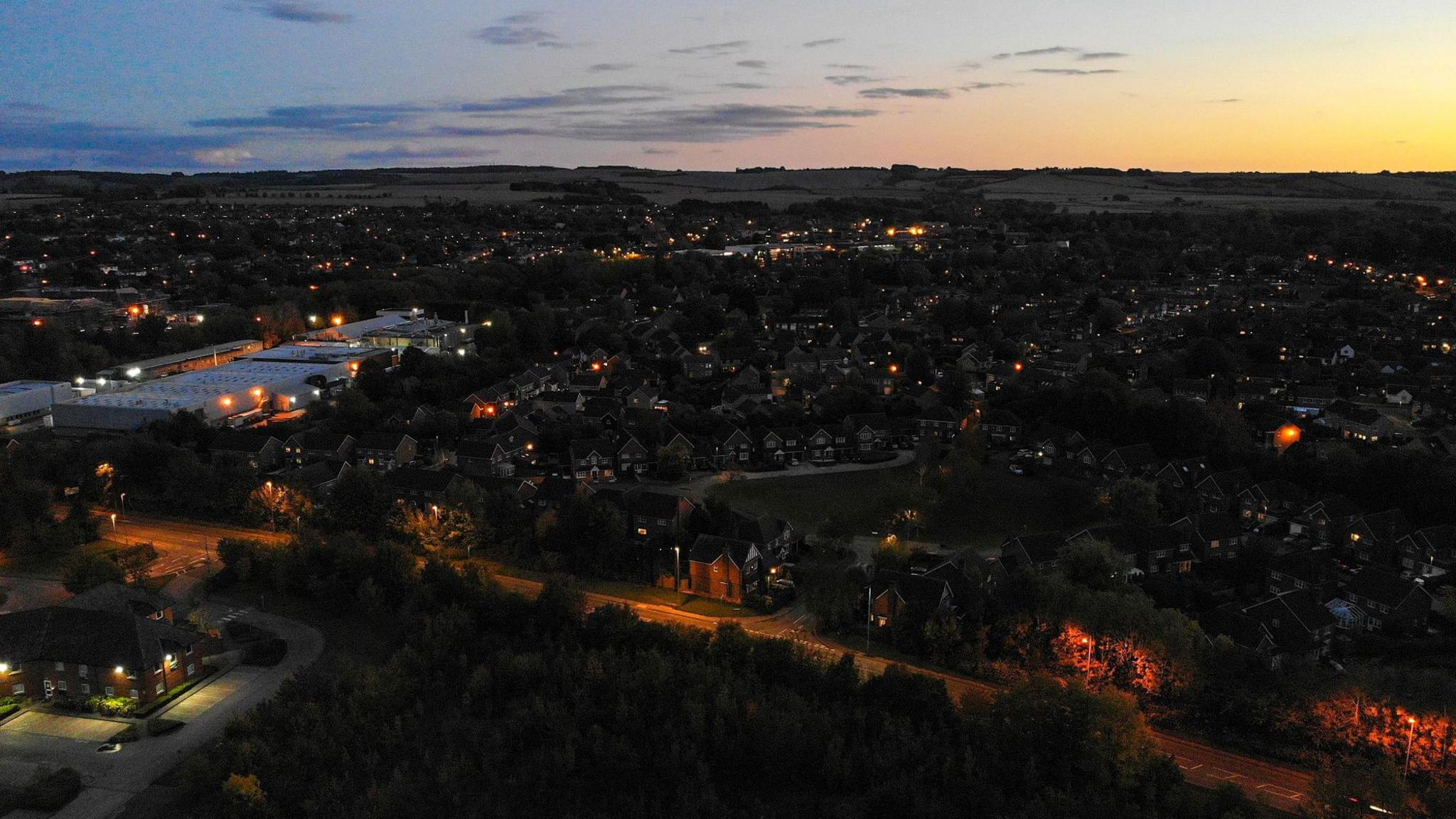Most street lights could be turned off overnight

Under the scheme, most lights in Wantage and wider Oxfordshire would be turned off overnight
- Published
Most of Oxfordshire's street lights would be turned off overnight under a council's scheme to cut artificial light.
The county council operates about 60,000 lights, with about 45,000 of them in residential areas.
It proposes most of them operate only between dusk and 23:00 and dawn and 06:30 in a plan it said would save £400,000 a year.
Exceptions would include lights which illuminate alleyways and paths away from roads, subways and where they are used to show road furniture like speed bumps.
The council said the plan was “primarily intended and focussed on reducing artificial night-time light” and would help cut the impact on wildlife.
But Thames Valley Police and Crime Commissioner Matthew Barber said he worried about other potential impacts.
“One of my greatest areas of concern is for the safety of women and vulnerable members of the public, particularly on a night out," he said.
"While current proposals do not suggest changes in town centres around the night-time economy, we know that both the fear of crime and the actual risk is not limited to town centres itself."
Street lighting is the largest single contributor to the council’s operational carbon emissions, it said, and the scheme would save about 5,000kWh of electricity per day.
The authority said other councils, such as West Sussex and Leicestershire, have already rolled out similar plans.
In the former’s case, it has had a part-time lighting scheme since the 1970s, the council said.
Oxfordshire's deputy leader Pete Sudbury will be asked to approve the terms of the new approach at a meeting on Thursday.
The authority said it would not run a formal consultation but would invite councillors, police and district councils to give their views.
A council-run campaign would also be used to raise awareness before any changes, it added.
Get in touch
Do you have a story BBC Oxfordshire should cover?
You can follow BBC Oxfordshire on Facebook, external, X, external, or Instagram, external.